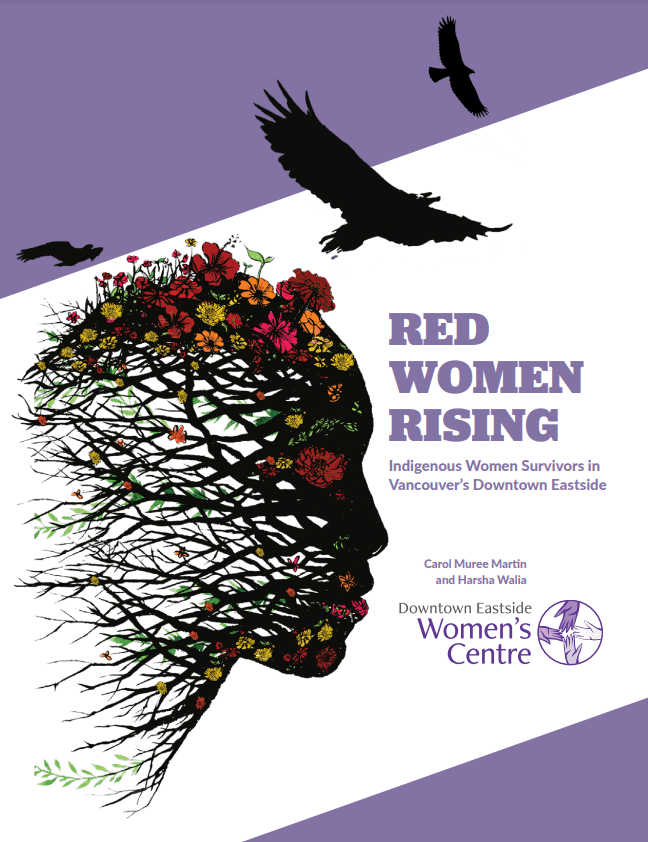104 search results
for
Government of Canada
Recommendations to end criminalization of Indigenous women in the DTES
Correctional facilities
Recommendation 175: Increase supports for Indigenous women on conditional release, particularly through income assistance, employment, counselling, and child care. Permit conditional release options that facilitate Indigenous women to be housed with their children.-
Category and theme:
Audience:
Recommendations to end criminalization of Indigenous women in the DTES
Correctional facilities
Recommendation 176: All day-to-day programs and services at remand, provincial, and federal facilities must be accessible, timely, and long term with the goal of decarceration and successful reintegration. Access must be unconditional, not contingent on classification, and not withdrawn as a punitive or disciplinary measure. Guaranteed programs and services must include:- Independent prison legal services.
- Independent healthcare in accordance with the U.N. Mandela rules including 24/7 appropriate healthcare; mental health counselling; access to gender-affirming surgery; detox on demand; heroin-assisted and injectable hydromorphone treatment; and safe needle exchange and tattooing program.
- Culturally appropriate and non-punitive healing programs that understand physical, mental, spiritual, and sexual traumas as intergenerational collective traumas caused by colonization.
- Free phone calls.
- Nutritious food.
- Library, reading materials, and computer literacy.
- Increased visitation, including increased hours, more opportunities for physical contact, and decreased security checks for visitors.
- Access to meaningful employment and higher prisoner pay.
- Support for release planning.
Recommendations to end criminalization of Indigenous women in the DTES
Correctional facilities
Recommendation 177: Establish alternatives to Correctional facilities for all mothers who are primary caregivers or expected to give birth while in prison. In the immediate, implement child-friendly mother-child units in all Correctional facilities so no child is separated from their mother.-
Category and theme:
Audience:
Groups affected:
Recommendations to end criminalization of Indigenous women in the DTES
Correctional facilities
Recommendation 178: For women who do not have primary custody of their children, prioritize the social bond between incarcerated mothers and their children. This includes:- Funding for families to cover the costs and logistics of transportation for visits and child-friendly practices during visitation including visitation hours scheduled after school hours, no body searches of children, and allowance for physical contact.
- Visitation outside the prison setting.
- Free and unlimited phone calls and introduce video calling technologies, in addition to the right to open in-person visits.
- Family reunification as a priority post-release by providing all the necessary supports including housing, child care, and parenting support.
-
Category and theme:
Audience:
Recommendations to end criminalization of Indigenous women in the DTES
Correctional facilities
Recommendation 179: Implement existing recommendations in the Report of the Standing Committee on the Status of Women, A Call to Action: Reconciliation with Indigenous Women in the Federal Justice and Correctional Systems.-
Category and theme:
Audience:
Recommendations for Indigenous women’s wellness in the DTES
Recommendation 180: All levels of government must acknowledge that the current state of Indigenous women’s health is a direct result of colonialism and government policies.-
Category and theme:
Audience:
Groups affected:
Recommendations for Indigenous women’s wellness in the DTES
Recommendation 181: Strengthen all the social determinants of Indigenous women’s health by ensuring access to and governance over land, culture, language, housing, child care, income security, employment, education, and safety.-
Category and theme:
Audience:
Groups affected:
Recommendations for Indigenous women’s wellness in the DTES
Culturally safe healthcare
Recommendation 185: End the coerced sterilization of Indigenous women, and hold health professionals criminally responsible for acts of coerced sterilization.-
Category and theme:
Audience:
Groups affected:
Recommendations for Indigenous women’s wellness in the DTES
Culturally safe healthcare
Recommendation 186: End the medical pathologizing and diagnosing of gender identity. Train healthcare professionals to provide gender-affirming care that is safe for and respectful of trans women and two-spirit people.-
Category and theme:
Audience:
Groups affected:
Recommendations for Indigenous women’s wellness in the DTES
Culturally safe healthcare
Recommendation 189: All medical and nursing schools in Canada must require courses dealing with Indigenous health issues, including the legacy of colonialism and its impacts, as well as skills-based training in anti-racism, human rights, and trauma-informed care.-
Category and theme:
Audience:
Groups affected:
